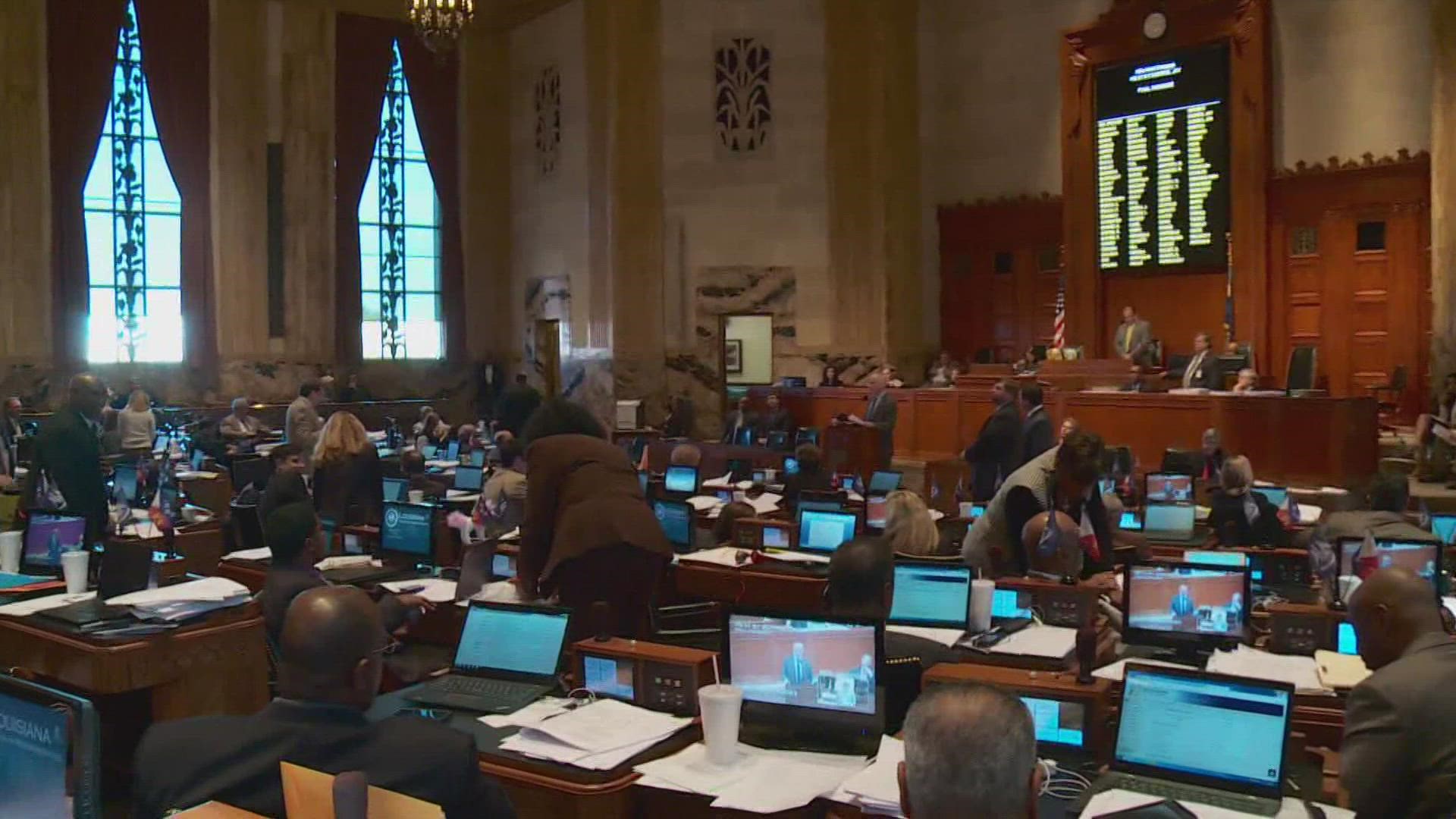BATON ROUGE, La. — Voting rights advocates have praised Louisiana Gov. John Bel Edwards decision to veto a congressional redistricting plan that didn’t create a second majority-Black district, but they've also criticized the Democratic governor for allowing legislative district maps that don’t increase minority representation to become law.
The leaders of the Republican-controlled Legislature, meanwhile, defended their remap plans, while facing a decision on whether to attempt an override of Edwards' Wednesday night veto of the new congressional maps.
“I am disappointed in the Governor’s decision to veto the congressional map & am confident that the map the legislature passed meets the requirements of the Voting Rights Act,” state Sen. Sharon Hewitt, a Slidell Republican and one of the leaders of the redistricting effort, said on Twitter. “I look forward to the debate on a veto override.”
Lawmakers open a regular session Monday and are expected to attempt a veto override. If they opt not to try an override, or if an override fails, they could simply pass the vetoed map again with a majority vote, send it to Edwards again and risk another veto. Rep. John Stefanski, the Crowley Republican who leads redistricting in the House, had already pre-filed a bill with the new map even before Edwards announced his veto.
Stefanski did not immediately return a phone call seeking comment Thursday.
A lawyer for the Southern Poverty Law Center Action Fund applauded the veto but also said Edwards' actions fell short.
“While we commend Governor Edwards for vetoing a congressional districting plan that severely diluted the power of Black voters, the fight for fair representation in Louisiana is far from over," Liza Weisberg said in an emailed statement. "The districting plans for the Louisiana House of Representatives and the Louisiana Senate that Governor Edwards declined to veto fail to provide Black voters an equal opportunity to participate in the political process and elect candidates of their choice.”
The new congressional maps are similar to existing maps, with boundary changes made to account for population shifts reflected in the 2020 census. The state's six congressional seats are currently held by five white Republicans and one Black Democrat.
Census data showed Louisiana’s population identified as nearly 56% white, more than 31% Black and nearly 7% Hispanic or Latino.
“I have vetoed the proposed congressional map drawn by Louisiana’s Legislature because it does not include a second majority African American district, despite Black voters making up almost a third of Louisianans per the latest U.S. Census data,” Edwards said. “This map is simply not fair to the people of Louisiana and does not meet the standards set forth in the federal Voting Rights Act.”
During the Legislature's recent redistricting session, Stefanski said he believes the maps comply with the law and balance a wide variety of factors that must be considered in redistricting.
“I took our population, I took the geography of the state, I took our communities of interest, I took the will of the public, the will of the Legislature and I balanced all of that with the law,” Stefanski said on the House floor.
Hewitt defended the plans, insisting that trying to include the state’s widely dispersed Black population in two separate congressional districts would result in two districts with very narrow Black majorities that could result in diminishing Black voter power.
Voting rights advocates who opposed the maps dispute that argument, saying their research shows Black candidates could win in the model districts they have seen.
The bills passed the Senate with more than the two-thirds majority needed to override a veto, should Edwards issue one. In the last House vote on the issue, the plan got 62 votes on Feb. 18, the final day of the special session. That was eight short of what would be needed to override a veto in the 105-member body. In vetoing the plan, Edwards faced the possibility that the House’s 68 Republicans could get the support of a few independents or Democrats to override the veto.
Opponents of the plan have vowed to challenge it in court, should it become law. But the prospects for success of such a challenge became murkier last month when the U.S. Supreme Court put on hold a lower court ruling that Alabama must draw new congressional districts before the 2022 elections to increase Black voting power.
► Get breaking news from your neighborhood delivered directly to you by downloading the new FREE WWL-TV News app now in the IOS App Store or Google Play.

